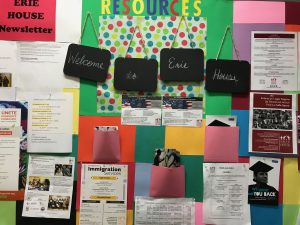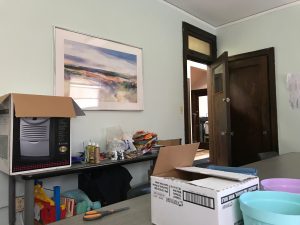This week is my last week at Growing Home, so naturally, I have been taking more time to pause and reflect on my CAPS journey. Last week, I spent time in our Learning Garden which serves as a hands-on experience for kids to touch and taste the produce we grow. The garden is the responsibility of my department to maintain, so I’ve spent a lot of time in that space over the summer pulling weeds, pruning beets, and harvesting all kinds of vegetables: tomatoes, radishes, green garlic, kale, swiss chard, and a few strawberries, (getting to sample a few along the way, of course). While working in the garden, I was surprised to see how tall our pea plants had grown from when we planted them a few weeks after I started my internship. These plants, which were once pea-sized seeds, had climbed to nearly 3 feet in just a few weeks. As cheesy as it sounds, I cannot help but connect my personal growth through the CAPS experience to the growth of these plants. Just as it’s difficult to notice a plant’s growth in real time, my own growth wasn’t always apparent day-by-day, but looking back through this summer, that growth is undeniable.
I am so grateful for the people and experiences that have supported my growth over the summer. One of those experiences has been the opportunity to work in each of the departments at Growing Home, which gave me a full experience and understanding of the organization and the work that they do. I mainly worked with the Community Engagement department hosting volunteer and tour groups on the farm, attending community events, and, lately, I have spent my time to helping prepare for Growing Home’s first Back to School Farm Fest at the end of August. This preparation has included everything from making a promotional flyer to creating 70 seed germination necklace kits that will be used as the kids’ activity to teach them about the beginning stages of plant life. Although I won’t be here for the event, it has been fun to see it take shape and to see the corner of our office pile up with boxes of in-kind donations, especially the 60 backpacks, full of school supplies, that will be given to children at the event.
Outside of my department, I visited the office where our development team works and learned more about what our development team does to keep the organization running smoothly and to raise the funding needed to keep the organization operating. I was able to learn about the process of organizing a fundraising event and helped create some social media posts.
Being given a variety of tasks and experiences has been one of my favorite parts of internship at Growing Home. I’ve learned proper way to bunch pieces of kale to form a uniform bouquet, helped with resume and job search workshops, acquired in-kind donations from local businesses, prepared weekly cooking demos, and recently created a short video for a grant. As a self-identified planner and sometimes overly-cautious person, these experiences have shown me my ability to take on new tasks or challenges and succeed, even in unfamiliar circumstances.
Overall, my CAPS experience has stretched my perspective, not only on the work that goes into running a non-profit, but also on the many injustices in our food system and the amazing work community members in Englewood are doing to overcome the challenges and barriers they have had to face.
Although I will miss working with the talented staff at Growing Home and spending time with the Chicago CAPS cohort, I’m happy to have made lasting connections with these wonderful people who have supported my growth this summer in the same way the metal cage supports the pea plants ability to grow taller and stronger. Going into the next semester, I’m thankful for the personal and professional growth I’ve made this summer, but just like the pea plant, I still have plenty more to grow.
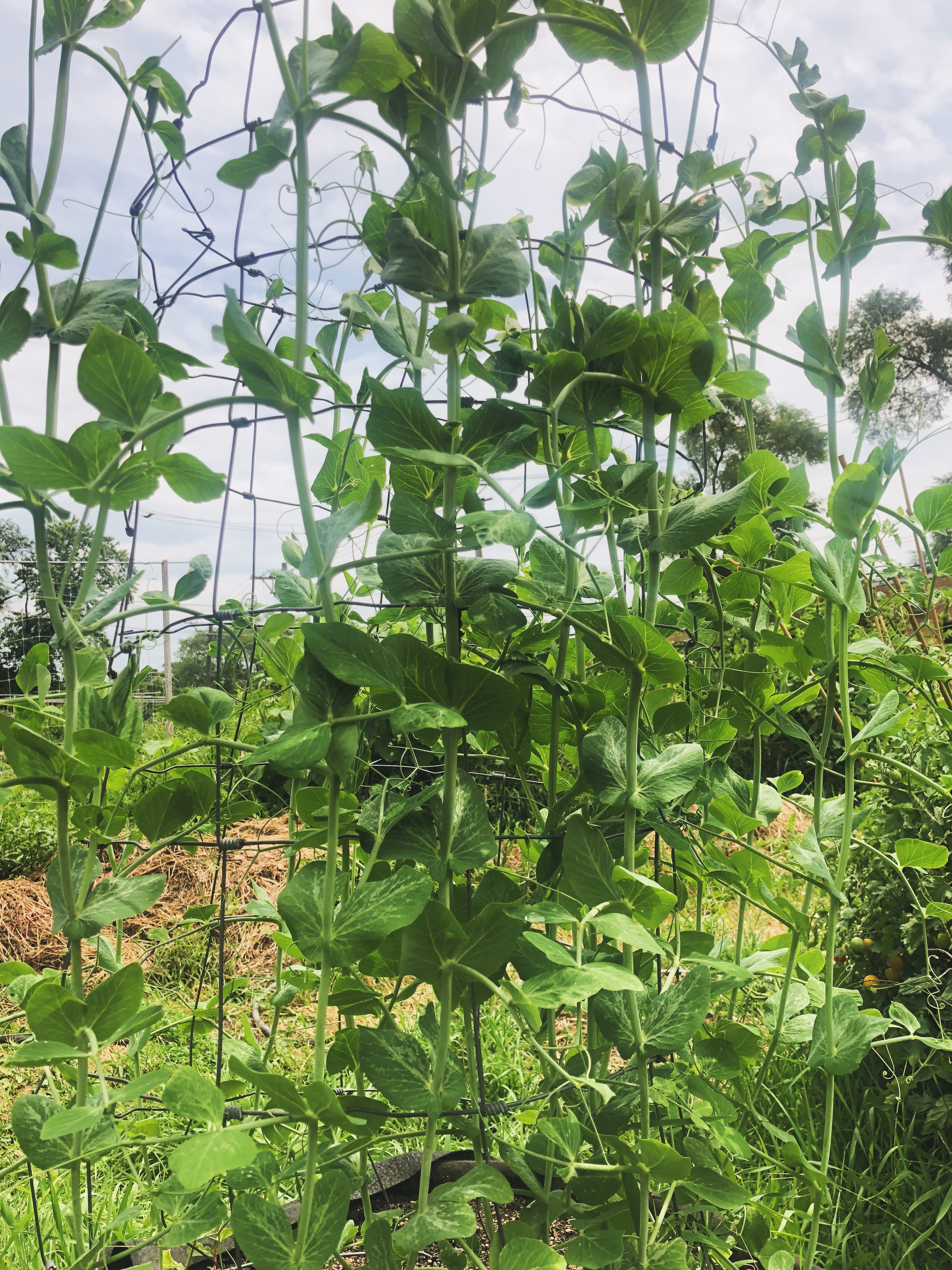
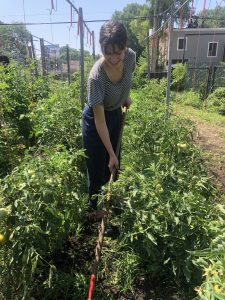
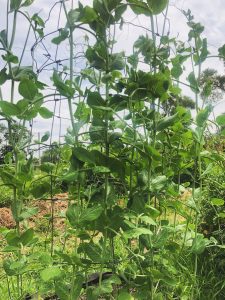
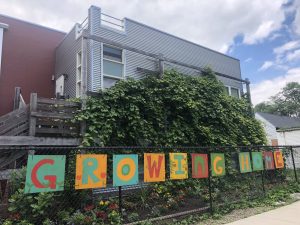
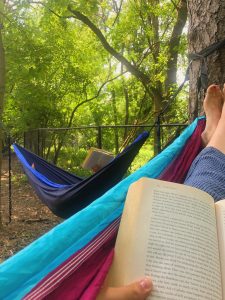
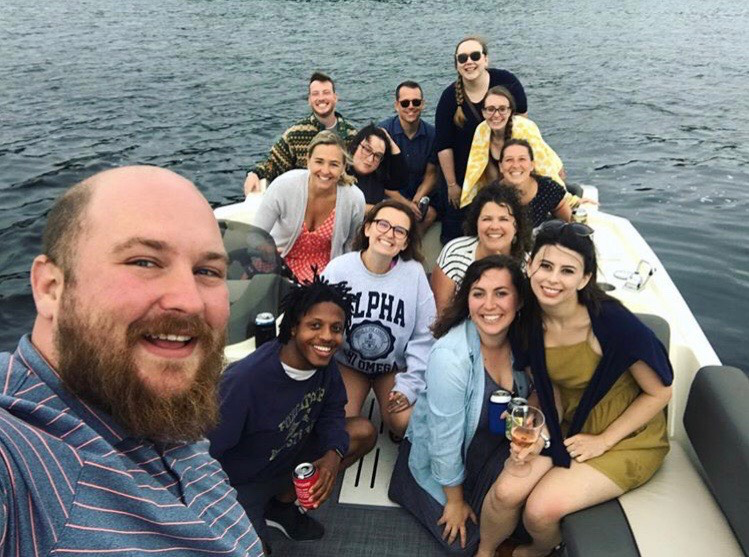
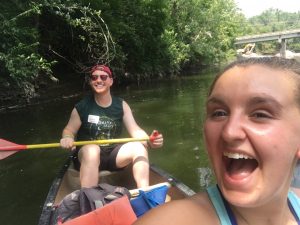
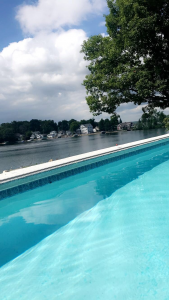
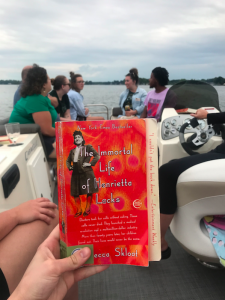
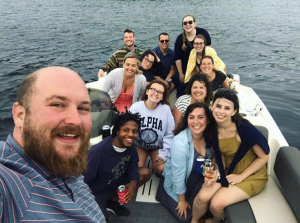
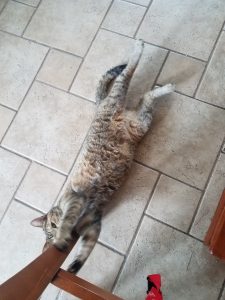
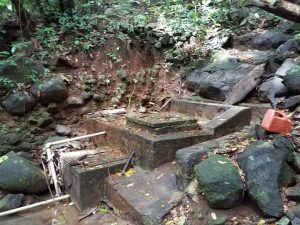
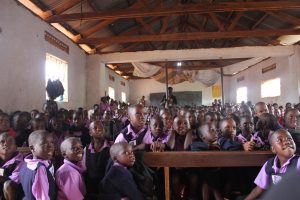
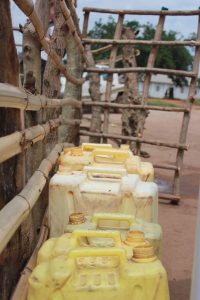
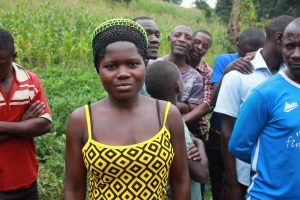
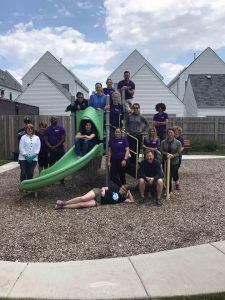
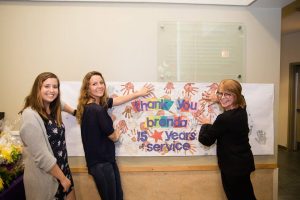
 Since this is my first blog, I’ll introduce myself. Hello, I’m Alicia, and I want to be an advocate for human trafficking survivors. It’s always a little awkward for me when I tell people my career aspirations. Human trafficking it’s exactly a light dinner conversation people expect when they ask me, “what do you want to do after graduation?” It may seem like I’m being unnecessarily specific, but I’m actually expanding my options. In high school I wanted to be a psychologist that specializes in healing trauma caused by human trafficking; however, VU has helped me broaden my career horizon while still centering it around human trafficking survivors. I could work as a lawyer, a policy maker, a researcher, an FBI intelligence analyst, or a caseworker. This why I find myself interning under caseworkers at Heartland Alliance’s Refugee and Immigrant Community Services (RICS). While this internship has been interpersonally and emotionally challenging; it has helped me grow in self-awareness and awareness of r
Since this is my first blog, I’ll introduce myself. Hello, I’m Alicia, and I want to be an advocate for human trafficking survivors. It’s always a little awkward for me when I tell people my career aspirations. Human trafficking it’s exactly a light dinner conversation people expect when they ask me, “what do you want to do after graduation?” It may seem like I’m being unnecessarily specific, but I’m actually expanding my options. In high school I wanted to be a psychologist that specializes in healing trauma caused by human trafficking; however, VU has helped me broaden my career horizon while still centering it around human trafficking survivors. I could work as a lawyer, a policy maker, a researcher, an FBI intelligence analyst, or a caseworker. This why I find myself interning under caseworkers at Heartland Alliance’s Refugee and Immigrant Community Services (RICS). While this internship has been interpersonally and emotionally challenging; it has helped me grow in self-awareness and awareness of r
